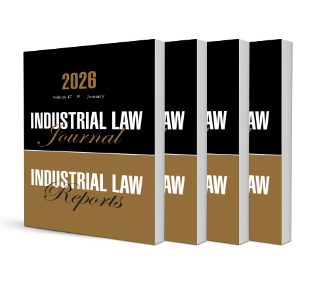Designated Employers, People with Disabilities and Sectoral Targets: An Analysis of the Amendments Promulgated in terms of the Employment Equity Amendment Act 4 of 2022

Designated Employers, People with Disabilities and Sectoral Targets: An Analysis of the Amendments Promulgated in terms of the Employment Equity Amendment Act 4 of 2022
Author Jeannine van de Rheede
ISSN: 2413-9874
Affiliations: Senior Lecturer, University of the Western Cape, PhD (Western Cape)
Source: Industrial Law Journal, Volume 47 Issue 1, 2026, p. 1 – 23
https://doi.org/10.47348/ILJ/v47/i1a1
Abstract
Employment equity is implemented in South Africa (SA) to redress the workplace injustices caused by apartheid. SA embraces substantive equality that acknowledges that remedial measures should be implemented to eradicate the negative effects of past and present unfair discrimination. The Employment Equity Act 55 of 1998 (EEA) was promulgated inter alia to promote the constitutional right to equality, by ensuring that employment equity is implemented and achieves a diverse workforce broadly representative of SA’s people. In terms of the Employment Equity Amendment Act 4 of 2022 the definition of a ‘designated employer’ and ‘people with disabilities’ has been amended. It provides, inter alia, that the Minister of the Department of Employment and Labour is empowered to set numerical targets to ensure the equitable representation of people from designated groups at the different occupational levels. This article determines whether inter alia this amendment is in line with the objectives that the EEA aims to achieve. While the government continues to emphasise its commitment to rectifying the historical imbalances in workplaces and promoting employment equity, the article illustrates that some of these amendments, when assessed through the lens of substantive equality, fall short of the Act’s objectives.